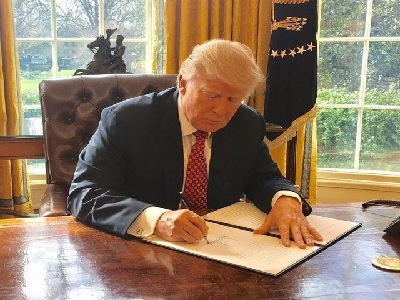 Trump
Has Rewritten
the Constitution Trump
Has Rewritten
the Constitution
President Trump has put his busy little pen to work and
drafted an executive order revising, not only the first ten
amendments (commonly referred to as the Bill of Rights) of
the U.S. Constitution, but the first twenty amendments. The
affects of this action are far reaching and will effect
millions of Americans across the country. Please read
through the revisions and post a comment at the bottom of
this page showing your opposition to these changes before
they become law and completely ruin the American society and
American democracy you have grown to love and Cherish.
The amendments are listed in numerical order, with each
amendment written verbatim as it appeared originally in the
U.S. Constitution. Following each amendment, is the Trump
proposed revisions, shown in red print. |
|
|
 AMENDMENT I AMENDMENT I
Congress shall make no law respecting an establishment of
religion, or prohibiting the free exercise thereof; or
abridging the freedom of speech, or of the press; or the
right of the people peaceably to assemble, and to petition
the Government for a redress of grievances. |
AMENDMENT I -
Revised
Congress shall make no law respecting an establishment of
religion, except
Christianity, or prohibiting the free exercise
thereof, except Islam;
or abridging the freedom of speech,
unless said speech is directed towards the President of the
United States of America, Neo-Nazi groups, the Ku Klux Klan,
or Alt-Right groups, or of the press,
unless said speech was produced by the
New York Times or the Washington Post; or the right
of the people peaceably to assemble,
with the exception of the ACLU, and to petition the
Government for a redress of grievances. |
|
|
 AMENDMENT II AMENDMENT II
A well regulated Militia, being necessary to the security of
a free State, the right of the people to keep and bear Arms,
shall not be infringed. |
AMENDMENT II -
Revised
A well regulated Militia, and a huge
stockpile of nuclear armaments, being necessary to
the security of an autocracy,
the right of the people to keep and bear Arms,
and to discharge said arms in public
at will, shall not only not
be infringed, but encouraged. |
|
|
 AMENDMENT III AMENDMENT III
No Soldier shall, in time of peace be quartered in any
house, without the consent of the Owner, nor in time of war,
but in a manner to be prescribed by law. |
AMENDMENT III -
Revised
Any Soldier shall, in time of
peace, be quartered in any house, with
or without the consent of the Owner,
and in time of war, in a manner
to be prescribed by the President of
the United States of America. |
|
|
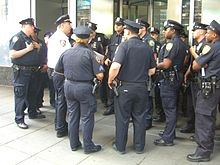 AMENDMENT IV AMENDMENT IV
The right of the people to be secure in their persons,
houses, papers, and effects, against unreasonable searches
and seizures, shall not be violated, and no Warrants shall
issue, but upon probable cause, supported by Oath or
affirmation, and particularly describing the place to be
searched, and the persons or things to be seized. |
AMENDMENT IV -
Revised
The right of the people to be unsecure
in their persons, houses, papers, and effects, against
unreasonable searches and seizures, shall not be violated,
and any Warrants shall issue,
without probable cause,
unsupported by Oath or
affirmation, and particularly not
describing the place to be searched, and the persons or
things to be seized. |
|
|
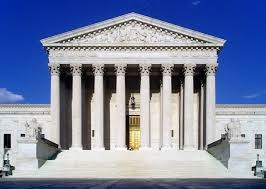 AMENDMENT V AMENDMENT V
No person shall be held to answer for a capital, or
otherwise infamous crime, unless on a presentment or
indictment of a Grand Jury, except in cases arising in the
land or naval forces, or in the Militia, when in actual
service in time of War or public danger; nor shall any
person be subject for the same offence to be twice put in
jeopardy of life or limb; nor shall be compelled in any
criminal case to be a witness against himself, nor be
deprived of life, liberty, or property, without due process
of law; nor shall private property be taken for public use,
without just compensation. |
AMENDMENT V -
Revised
Any person shall be held to
answer for a capital, or otherwise infamous crime,
without a presentment or
indictment of a Grand Jury, including
cases arising in the land or naval forces, or in the
Militia, when in actual service in time of War or public
danger; and any person
shall be subject for the same
offence to be twice put in jeopardy of life or limb;
and shall be compelled in any
criminal case to be a witness against himself,
and be deprived of life,
liberty, or property, without due process of law;
and private property
shall be taken for public use,
without just compensation. |
|
|
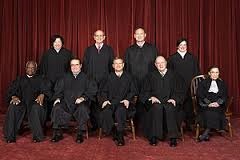 AMENDMENT VI AMENDMENT VI
In all criminal prosecutions, the accused shall enjoy the
right to a speedy and public trial, by an impartial jury of
the State and district wherein the crime shall have been
committed, which district shall have been previously
ascertained by law, and to be informed of the nature and
cause of the accusation; to be confronted with the witnesses
against him; to have compulsory process for obtaining
witnesses in his favor, and to have the Assistance of
Counsel for his defence. |
AMENDMENT VI -
Revised
In all criminal prosecutions, the accused shall enjoy the
right to a lengthy and costly
public trial, by a biased jury
of the State and district wherein the crime shall have been
committed, which district shall have been previously
ascertained by law, and to be uninformed
of the nature and cause of the accusation; to
not be confronted with the
witnesses against him; to not
have compulsory process for obtaining witnesses in his
favor, and to not have the
Assistance of Counsel for his defence. |
|
|
 AMENDMENT VII AMENDMENT VII
In Suits at common law, where the value in controversy shall
exceed twenty dollars, the right of trial by jury shall be
preserved, and no fact tried by a jury, shall be otherwise
re-examined in any Court of the United States, than
according to the rules of the common law. |
AMENDMENT VII -
Revised
In Suits at common law, where the value in controversy shall
exceed twenty million dollars,
the right of trial by jury shall be preserved, and
any fact tried by a jury,
can be otherwise re-examined in
any Court of the United States, not in
accordance to the rules of the common law. |
|
|
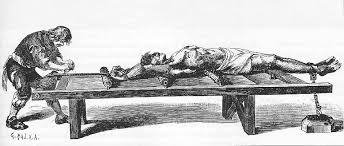 AMENDMENT VIII AMENDMENT VIII
Excessive bail shall not be required, nor excessive fines
imposed, nor cruel and unusual punishments inflicted. |
AMENDMENT VIII -
Revised
Excessive bail shall be required, and
excessive fines imposed, and
cruel and unusual punishments inflicted. |
|
|
|
 AMENDMENT IX AMENDMENT IX
The enumeration in the Constitution, of certain rights,
shall not be construed to deny or disparage others retained
by the people. |
AMENDMENT IX -
Revised
The enumeration in the Constitution, of certain rights,
shall absolutely be construed
to deny or disparage others retained by the people. |
|
|
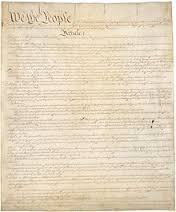 AMENDMENT X AMENDMENT X
The powers not delegated to the United States by the
Constitution, nor prohibited by it to the States, are
reserved to the States respectively, or to the people. |
AMENDMENT X -
Revised
The powers not delegated to the United States by the
Constitution, nor prohibited by it to the States, are
not reserved to the States
respectively, nor to the
people. |
|
|
|
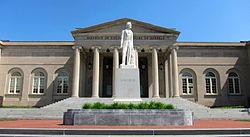 AMENDMENT XI AMENDMENT XI
The Judicial power of the United States shall not be
construed to extend to any suit in law or equity, commenced
or prosecuted against one of the United States by Citizens
of another State, or by Citizens or Subjects of any Foreign
State. |
AMENDMENT XI -
Revised
The Judicial power of the United States shall
absolutely be construed to
extend to any suit in law or equity, commenced or prosecuted
against one of the United States by Citizens of another
State, or by Citizens or Subjects of any Foreign State. |
|
|
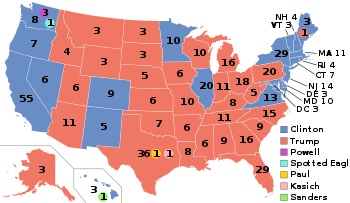 AMENDMENT XII AMENDMENT XII
The Electors shall meet in their respective states and vote
by ballot for President and Vice-President, one of whom, at
least, shall not be an inhabitant of the same state with
themselves; they shall name in their ballots the person
voted for as President, and in distinct ballots the person
voted for as Vice-President, and they shall make distinct
lists of all persons voted for as President, and of all
persons voted for as Vice-President, and of the number of
votes for each, which lists they shall sign and certify, and
transmit sealed to the seat of the government of the United
States, directed to the President of the Senate; -- the
President of the Senate shall, in the presence of the Senate
and House of Representatives, open all the certificates and
the votes shall then be counted; -- The person having the
greatest number of votes for President, shall be the
President, if such number be a majority of the whole number
of Electors appointed; and if no person have such majority,
then from the persons having the highest numbers not
exceeding three on the list of those voted for as President,
the House of Representatives shall choose immediately, by
ballot, the President. But in choosing the President, the
votes shall be taken by states, the representation from each
state having one vote; a quorum for this purpose shall
consist of a member or members from two-thirds of the
states, and a majority of all the states shall be necessary
to a choice. [And if the House of Representatives shall not
choose a President whenever the right of choice shall
devolve upon them, before the fourth day of March next
following, then the Vice-President shall act as President,
as in case of the death or other constitutional disability
of the President. --]* The person having the greatest number
of votes as Vice-President, shall be the Vice-President, if
such number be a majority of the whole number of Electors
appointed, and if no person have a majority, then from the
two highest numbers on the list, the Senate shall choose the
Vice-President; a quorum for the purpose shall consist of
two-thirds of the whole number of Senators, and a majority
of the whole number shall be necessary to a choice. But no
person constitutionally ineligible to the office of
President shall be eligible to that of Vice-President of the
United States.
*Superseded by section 3 of the 20th amendment. |
AMENDMENT XII -
Revised
The Electors shall meet in their respective states and vote
by ballot for President and Vice-President, one of whom, at
least, shall not be an inhabitant of the same state with
themselves; they shall name in their ballots the person
voted for as President, and in distinct ballots the person
voted for as Vice-President, and they shall make distinct
lists of all persons voted for as President, and of all
persons voted for as Vice-President, and of the number of
votes for each, which lists they shall sign and certify, and
transmit unsealed to the seat
of the government of the United States, directed to the
President of the Senate; -- the President of the Senate
shall, not in the presence of
the Senate and House of Representatives, open
some of the certificates and
the votes shall not be counted;
-- The person having the greatest number of votes for
President is irrelevant,
and shall probably be
the President, if such number be a majority of the whole
number of Electors appointed; and if no person have such
majority, then from the persons having the highest numbers
not exceeding three on the list of those voted for as
President, the House of Representatives shall choose
immediately, by ballot, the President. But in choosing the
President, the votes shall be taken by states, the
representation from each state having one vote; a quorum for
this purpose shall consist of a member or members from
two-thirds of the states, and a majority of all the states
shall be necessary to a choice. [And if the House of
Representatives shall not choose a President whenever the
right of choice shall devolve upon them, before the fourth
day of March next following, then the Vice-President shall
act as President, as in case of the death or other
constitutional disability of the President. --]* The person
having the greatest number of votes as Vice-President, shall
be the Vice-President, if such number be a majority of the
whole number of Electors appointed, and if no person have a
majority, then from the two highest numbers on the list, the
Senate shall choose the Vice-President; a quorum for the
purpose shall consist of two-thirds of the whole number of
Senators, and a majority of the whole number shall be
necessary to a choice. But no person constitutionally
ineligible to the office of President shall be eligible to
that of Vice-President of the United States.
*Superseded by section 3 of the 20th amendment. |
|
|
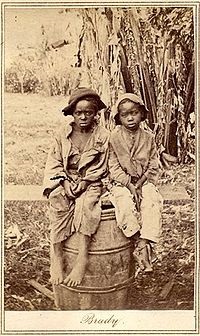 AMENDMENT XIII AMENDMENT XIII
Neither slavery nor involuntary servitude, except as a
punishment for crime whereof the party shall have been duly
convicted, shall exist within the United States, or any
place subject to their jurisdiction. |
AMENDMENT XIII -
Revised
Both slavery
and involuntary servitude,
included as a punishment for
crime whereof the party shall have or
have not been duly convicted, shall exist within the
United States, or any place subject to their jurisdiction. |
|
|
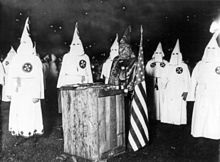 AMENDMENT XIV AMENDMENT XIV
All persons born or naturalized in the United States, and
subject to the jurisdiction thereof, are citizens of the
United States and of the State wherein they reside. No State
shall make or enforce any law which shall abridge the
privileges or immunities of citizens of the United States;
nor shall any State deprive any person of life, liberty, or
property, without due process of law; nor deny to any person
within its jurisdiction the equal protection of the laws. |
AMENDMENT XIV -
Revised
All white, heterosexual, Christian
persons born or naturalized in the United States, and
subject to the jurisdiction thereof, are citizens of the
United States and of the State wherein they reside.
Any State
may make or enforce any law which shall abridge the
privileges or immunities of non white,
non heterosexual, non Christian, citizens of the
United States; and any State
shall deprive any
non white, non heterosexual, non
Christian, person of life, liberty, or property,
with the due process of law; and deny to any
non white, non heterosexual, non
Christian, person within its jurisdiction the equal
protection of the laws. |
|
|
 AMENDMENT XV AMENDMENT XV
The right of citizens of the United States to vote shall not
be denied or abridged by the United States or by any State
on account of race, color, or previous condition of
servitude. |
AMENDMENT XV -
Revised
The right of white, heterosexual,
Christian citizens of the United States to vote shall
not be denied or abridged by the United States or by any
State but shall be denied or abridged
by the United States or by any State on account of
race, color, or previous condition of servitude. |
|
|
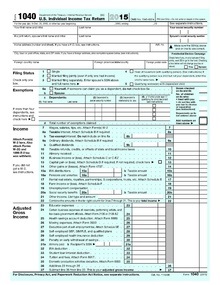 AMENDMENT XVI AMENDMENT XVI
The Congress shall have power to lay and collect taxes on
incomes, from whatever source derived, without apportionment
among the several States, and without regard to any census
or enumeration. |
AMENDMENT XVI -
Revised
The Congress shall have power to lay and collect
excessive taxes on
lower incomes, from whatever
source derived, without apportionment among the several
States, and without regard to any census or enumeration. |
|
|
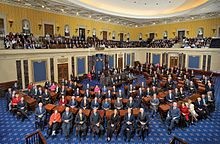 AMENDMENT XVII AMENDMENT XVII
The Senate of the United States shall be composed of two
Senators from each State, elected by the people thereof, for
six years; and each Senator shall have one vote. The
electors in each State shall have the qualifications
requisite for electors of the most numerous branch of the
State legislatures.
When vacancies happen in the representation of any State in
the Senate, the executive authority of such State shall
issue writs of election to fill such vacancies: Provided,
That the legislature of any State may empower the executive
thereof to make temporary appointments until the people fill
the vacancies by election as the legislature may direct.
This amendment shall not be so construed as to affect the
election or term of any Senator chosen before it becomes
valid as part of the Constitution. |
AMENDMENT XVII -
Revised
The Senate of the United States shall be composed of two
white, heterosexual, Christian
Senators from each State, elected by the
white, heterosexual, Christian
people thereof, for six years; and each Senator shall have
one vote. The electors in each State shall have the
qualifications requisite for electors of the most numerous
branch of the State legislatures.
When vacancies happen in the representation of any State in
the Senate, the executive authority of such State shall
issue writs of election to fill such vacancies: Provided,
That the legislature of any State may empower the executive
thereof to make temporary appointments until the people fill
the vacancies by election as the legislature may direct.
This amendment shall not be so construed as to affect the
election or term of any Senator chosen before it becomes
valid as part of the Constitution. |
|
|
 AMENDMENT XVIII AMENDMENT XVIII
Repealed by amendment 21. Reinstituted by
executive order.
After one year from the ratification of this article the
manufacture, sale, or transportation of intoxicating liquors
within, the importation thereof into, or the exportation
thereof from the United States and all territory subject to
the jurisdiction thereof for beverage purposes is hereby
prohibited. |
AMENDMENT XVIII -
Revised
Effective immediately from the
ratification of this article the manufacture, sale, or
transportation of intoxicating liquors within, the
importation thereof into, or the exportation thereof from
the United States and all territory subject to the
jurisdiction thereof for beverage purposes is hereby
prohibited, with the exception of
intoxicating liquors produced by the Trump Winery. |
|
|
 AMENDMENT XIX AMENDMENT XIX
The right of citizens of the United States to vote shall not
be denied or abridged by the United States or by any State
on account of sex. |
AMENDMENT XIX -
Revised
The right of citizens of the United States to vote shall
absolutely be denied or
abridged by the United States or by any State on account of
sex or sexual orientation. |
|
|
 AMENDMENT XX AMENDMENT XX
Section 1.
The terms of the President and the Vice President shall end
at noon on the 20th day of January, and the terms of
Senators and Representatives at noon on the 3d day of
January, of the years in which such terms would have ended
if this article had not been ratified; and the terms of
their successors shall then begin.
Section 2.
The Congress shall assemble at least once in every year, and
such meeting shall begin at noon on the 3d day of January,
unless they shall by law appoint a different day.
Section 3.
If, at the time fixed for the beginning of the term of the
President, the President elect shall have died, the Vice
President elect shall become President. If a President shall
not have been chosen before the time fixed for the beginning
of his term, or if the President elect shall have failed to
qualify, then the Vice President elect shall act as
President until a President shall have qualified; and the
Congress may by law provide for the case wherein neither a
President elect nor a Vice President shall have qualified,
declaring who shall then act as President, or the manner in
which one who is to act shall be selected, and such person
shall act accordingly until a President or Vice President
shall have qualified.
Section 4.
The Congress may by law provide for the case of the death of
any of the persons from whom the House of Representatives
may choose a President whenever the right of choice shall
have devolved upon them, and for the case of the death of
any of the persons from whom the Senate may choose a Vice
President whenever the right of choice shall have devolved
upon them.
Section 5.
Sections 1 and 2 shall take effect on the 15th day of
October following the ratification of this article.
Section 6.
This article shall be inoperative unless it shall have been
ratified as an amendment to the Constitution by the
legislatures of three-fourths of the several States within
seven years from the date of its submission. |
AMENDMENT XX -
Revised
Section 1.
The terms of the President and the Vice President shall
never end, and the terms of
Republican Senators and Representatives shall
never end.
Section 2.
The Congress shall assemble at least once in every year, and
such meeting shall begin at noon on the 3d day of January,
unless they shall by law appoint a different day.
Section 3.
If, at the time fixed for the beginning of the term of the
President, the President elect shall have died, the Vice
President elect shall become President. If a President shall
not have been chosen before the time fixed for the beginning
of his term, or if the President elect shall have failed to
qualify, then the Vice President elect shall act as
President until a President shall have qualified; and the
Congress may by law provide for the case wherein neither a
President elect nor a Vice President shall have qualified,
declaring who shall then act as President, or the manner in
which one who is to act shall be selected, and such person
shall act accordingly until a President or Vice President
shall have qualified.
Section 4.
The Congress may by law provide for the case of the death of
any of the persons from whom the House of Representatives
may choose a President whenever the right of choice shall
have devolved upon them, and for the case of the death of
any of the persons from whom the Senate may choose a Vice
President whenever the right of choice shall have devolved
upon them.
Section 5.
Sections 1 and 2 shall take effect on the 15th day of
October following the ratification of this article.
Section 6.
This article shall be inoperative unless it shall have been
ratified as an amendment to the Constitution by the
legislatures of three-fourths of the several States within
seven years from the date of its submission. |
|
|
 Hope
You Enjoyed This Hope
You Enjoyed This
Hey the last few weeks have been frustrating, to say the
least. I needed to do something to relieve the tension and a
Trump rewrite of the constitutional amendments was just the
ticket. No, the amendments of the constitution are not
actually being rewritten, for those of you who got to the
end of this page and still didn't realize....sorry for the
sarcasm....again frustrated. Anyway, if you found this even
mildly entertaining, please give your friends the chance to
enjoy it too. Thanks. |
|
|